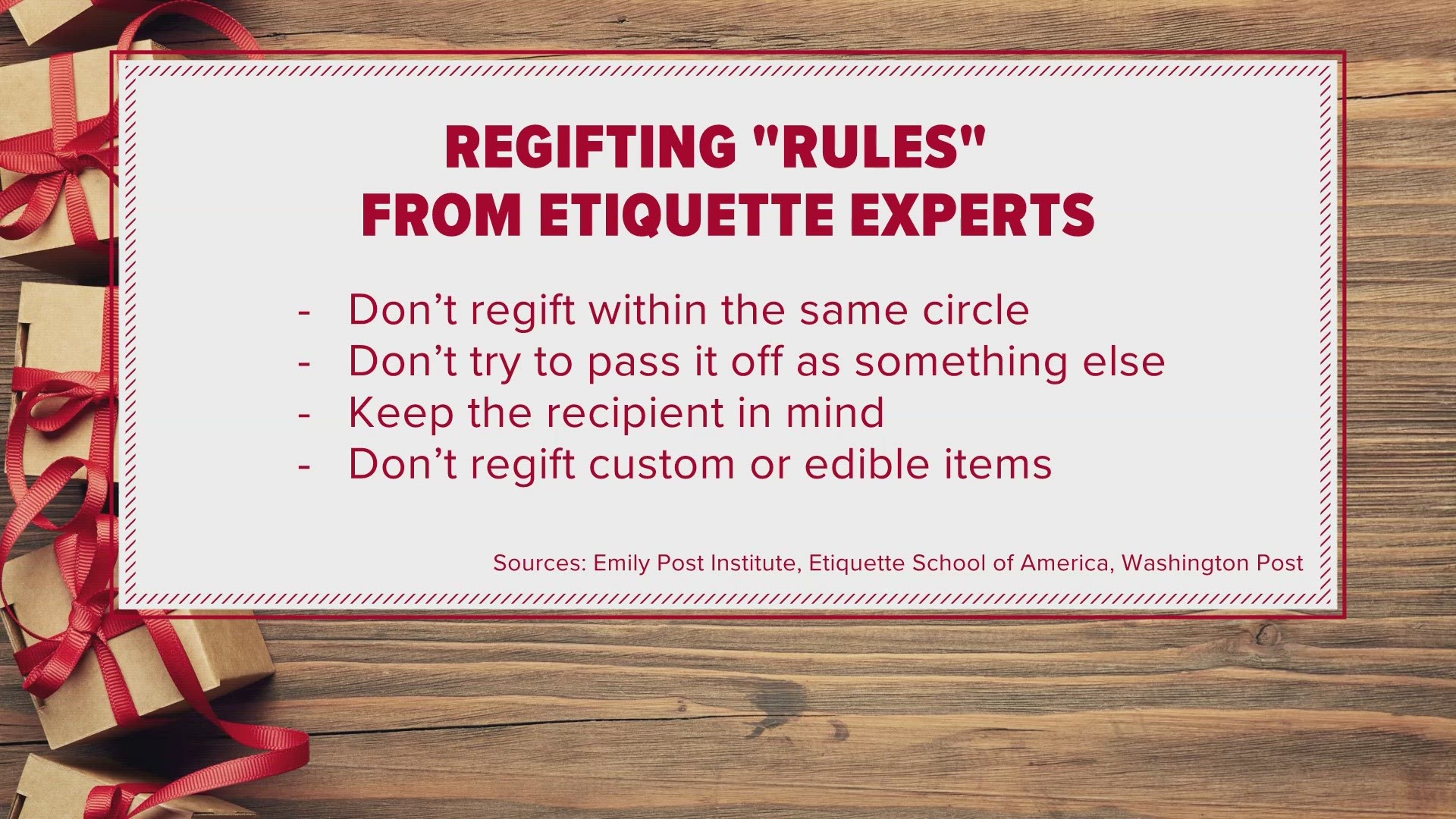WASHINGTON — Regifting is the act of giving someone something that you already had. It could be something you bought but never wound up using, or, in the most literal sense, a gift someone gave you that you then pass to someone else rather than keeping.
The act regifting can be a controversial one among gift receipients.
Here’s what top etiquette experts have to say about the practice.
- Keep it separate: Don’t regift within the same social circle, to lower the odds someone will recognize “the gift as one that’s been passed along. That means keeping track of who got you a gift, and when. Don’t practice regifting if you aren’t going to be careful,” writes Washington Post advice columnist Michelle Singletary. “Nothing gives regifting a black eye more than stories of people getting back gifts that they have given to the recipients.
- Keep it simple: don’t try to pass a gift off as something it’s not, like by putting it in fancier packaging or with labels from a store where you didn’t buy it. However, the Emily Post Institute still advises rewrapping a regift, and including an original card.
- Keep the recipient in mind: Only regift something you genuinely think the person would really like, like something you might actually consider buying for the person if you found it in a store.
- Keep the custom, personalized, and hand-made items: If someone put a lot of work and effort into giving something to you, don’t then pass it to someone else.
- Keep food and pantry items: Regifting food items is tricky, especially with expiration dates and proper storage to consider. “If the recipient opens it for a cozy indoor picnic to ring in the New Year or to serve to guests at a party, they aren’t going to be happy biting into stale crackers and iffy smoked salmon,” writes The Etiquette School of America.
- Keep it kind: If you expect you have received a regifted item, smile and express your gratitude anyway.

